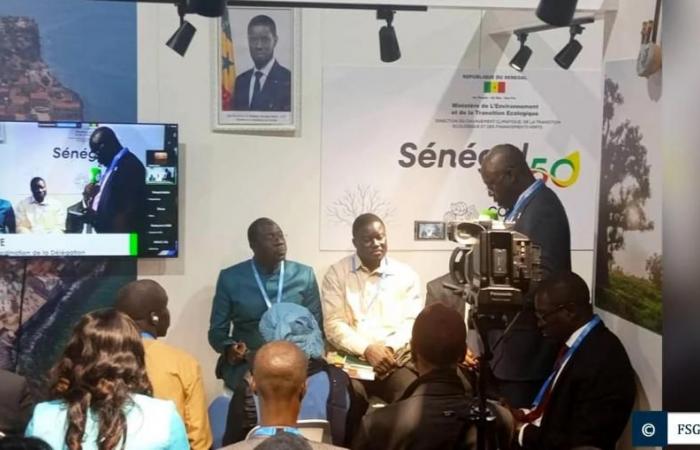Senegal needs an amount estimated at 2 billion dollars (more than 1,240 billion FCFA) each year to implement its climate change adaptation and mitigation strategies, indicated the Minister of the Environment and the Ecological Transition, Daouda Ngom.
“This funding is essential to develop resilient infrastructure, promote sustainable agricultural practices, invest in renewable energy, among others,” he said.
Daouda Ngom spoke on Wednesday on the occasion of the day dedicated to Senegal as part of COP 29. This day is focused on the theme: ”Climate finance in Senegal”.
He indicated that since the establishment of the financial mechanisms of the Global Environment Facility (GEF), the Green Climate Fund and the Adaptation Fund, the country has only received a total amount of 340,761. 931 USD (211,954,585,908 CFA francs).
This envelope does not take into account multilateral and bilateral financing as well as that of the private sector.
He believes that it is therefore ”crucial to strengthen local capacities to effectively access available funding”.
“Senegal has already put in place a strategic framework with the Green Climate Fund (GCF) and other mechanisms that help us identify our investment priorities,” he informed.
He called for ”continuing to work together to simplify the processes for accessing funds and ensuring that resources reach those who need them most”.
COP 29, “a decisive moment”
Daouda Ngom underlined that COP29 is “a decisive moment” where partners should redouble their efforts to meet their climate commitments, particularly with regard to financing, an essential pillar in order to ensure a global ecological transition.
He recalled that Senegal is resolutely committed to climate action. ”In this spirit, we have developed our National Adaptation Action Plan, which identifies priority actions in key sectors, such as agriculture, water resources and coastal zones,” he informed. .
The minister noted that Senegal has also developed its “nationally determined contribution”. This ”sets ambitious objectives for reducing emissions and adaptation”.
Senegal has also developed “national sectoral adaptation plans which facilitate the integration of climate change and adaptation measures into planning and budgeting”.
According to him, the implementation of these plans requires considerable financial resources, well beyond national capacities. ”This is why the issue of climate finance is fundamental for us. It is not an option, but a vital necessity. It represents not only an economic opportunity, but also an act of climate justice,” explained the minister.
He further assured that Senegal is determined to strengthen its institutional and technical capacities for better management and absorption of climate financing.
Much more than an economic tool
He invited international cooperation to aim to “strengthen” capacities, “streamline the processes for granting funds and facilitate the transfer of sustainable technologies.
The Minister of the Environment and Ecological Transition believes that climate finance is much more than an economic tool. ”It is a symbol of international solidarity and the translation of our collective commitment to building a sustainable future,” he noted.
”The climate crisis is a global challenge that requires a global response. At this COP29, we must seize the opportunity to strengthen climate finance and transform our commitments into concrete actions,” he encouraged.
During the two-week meeting in Baku, parties will negotiate a new collective quantified target (NCQG), a more ambitious, transparent and predictable climate finance target that better meets the needs of developing countries on mitigation, adaptation and loss and damage.






